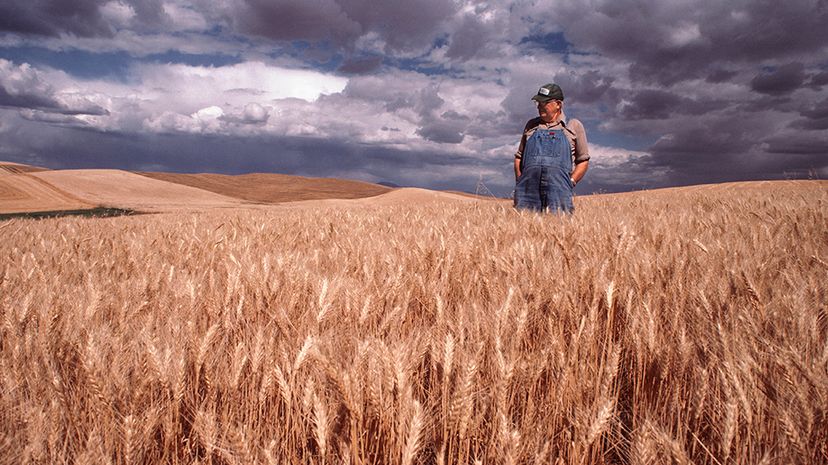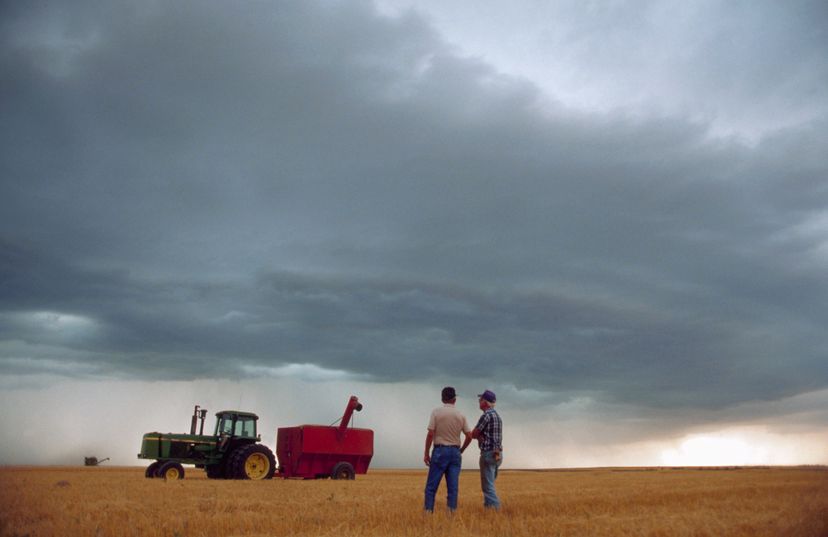
During the mid-1980s farm crisis, plunging crop prices combined with soaring fuel costs and interest rates to put the nation's farmers in a world of hurt. For rural America, the ordeal was so severe that rock stars were moved to hold benefit concerts and write songs. John Mellencamp's "Rain on the Scarecrow," for instance, dramatized their plight. Even so, many farmers felt so desperate that they looked for a way to end their troubles. And during this time, the suicide rate among farmers surged in the Midwest. More than 900 farmers took their own lives in the states of Minnesota, North Dakota, South Dakota and Montana alone during the 1980s.
Several decades have passed since then, but life on the farm hasn't gotten that much easier. According to a new study in the Journal of Rural Health, suicide has plagued farm operators and workers at a rate several times higher than the overall working U.S. population.
Advertisement
During the 19-year period between 1992 and 2010, 230 farmers took their lives, at an annual rate that ranged from 0.36 to 0.95 per 100,000. American workers as a whole, in contrast, never exceeded 0.19 per 100,000 during that span.
"Farmers and agriculture workers commit suicide at a rate higher than all other occupations combined," says Wendy Ringgenberg, an assistant professor of health care administration at Des Moines University and the study's corresponding author, via email.
"Farmers' and agriculture workers' lives frequently include stressors correlated with suicide," she says. In addition to their financial struggles, farmers are also beset by feelings of not being able to meet expectations, and not being in control of events influencing their lives. Some are forced to cope with pain from injuries frequently suffered during farm work, which is one of the most dangerous ways to make a living, according to federal data.
"They struggle with their ability to carve out the role they see for themselves as farmers," says study co-author Corinne Peek-Asa, professor of occupational and environmental health in the University of Iowa College of Public Health, in a university press release, underscoring cultural pressures. "They can't take care of their family; they feel like they have fewer and fewer options and can't dig themselves out. Eventually, suicide becomes an option."
And when farmers dealing with depression reach a point at which life no longer seems worth living, they often have the means at their disposal to end things quickly, since gun ownership is high in rural America, according to this 2015 study. But Michael R. Rosmann, a Harlan, Iowa-based psychologist and University of Iowa adjunct professor who is also a farmer, says that even in countries such as Australia, where firearm restrictions are strong, see high agricultural suicide rates. "Farmers intent upon taking their lives found alternative methods," he says in an email.

And to compound the issues, farmers face difficulty getting help in coping with their problems, since they often live far away from towns and cities where mental health professionals are based. And there's been far less effort by the federal government to provide them with the sort of access to mental health care that military veterans, another group with a high suicide risk, receive. And in the United States, men are four times more likely than women to commit suicide.
For a time in the mid-2000s, Rosmann headed a program called Sowing the Seeds of Hope, which operated a hotline and provided mental health services to farm and ranch operators, workers and families in seven Midwestern and Western states. As Rosmann detailed in a 2014 paper, 1.9 percent of the people who called the hotline during a two-year period "either were struggling with suicidal ideation, had a plan or had attempted suicide." But that program ended in 2010 due to lack of funding.
A 2008 federal farm bill aimed to create something called the Farm and Ranch Stress Assistance Network, which would have included a national mental-health hotline and helped establish support groups for farmers. But, as Newsweek reported in 2016, Congress never provided the funding needed to actually accomplish those things.
Advertisement

